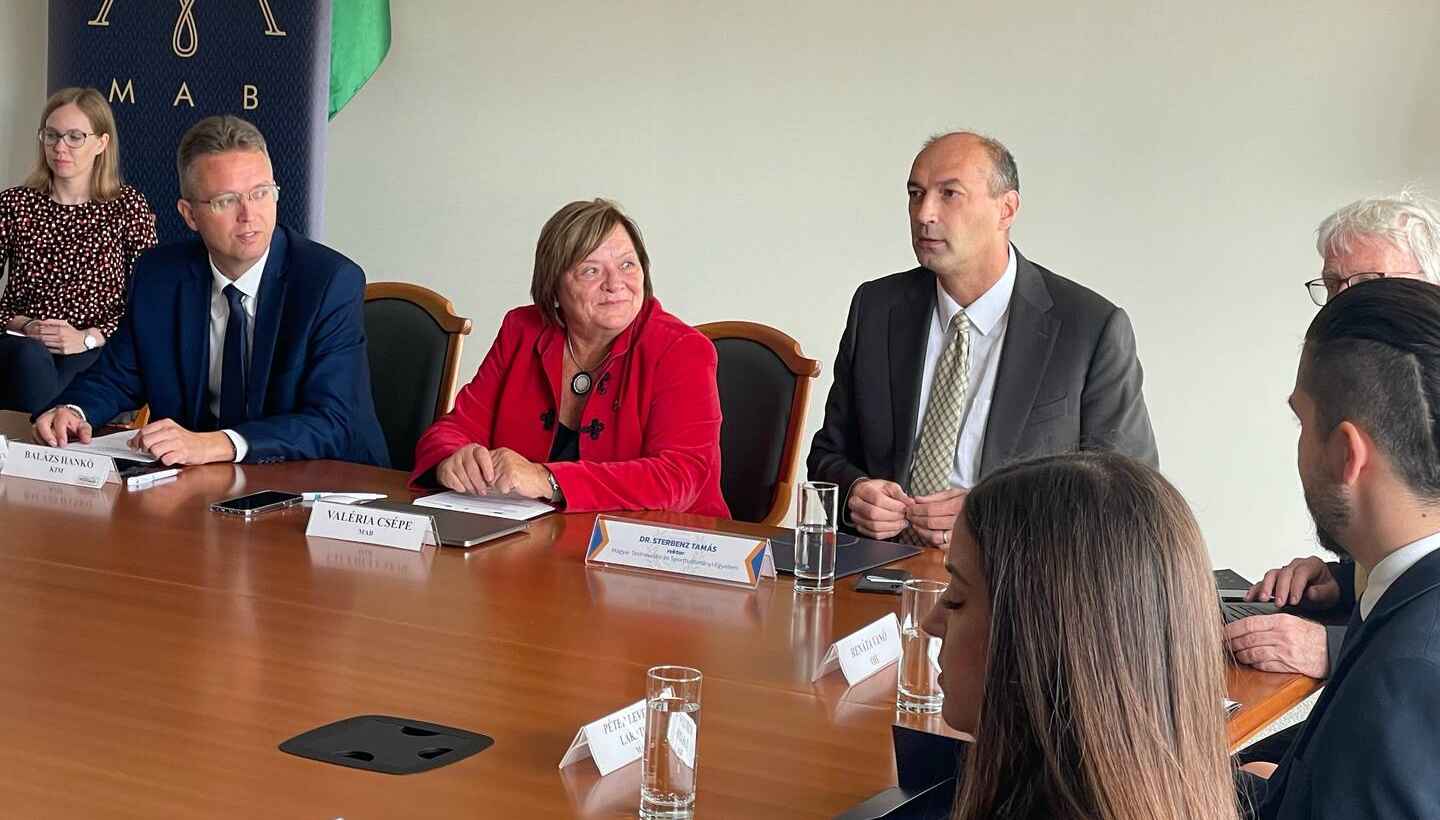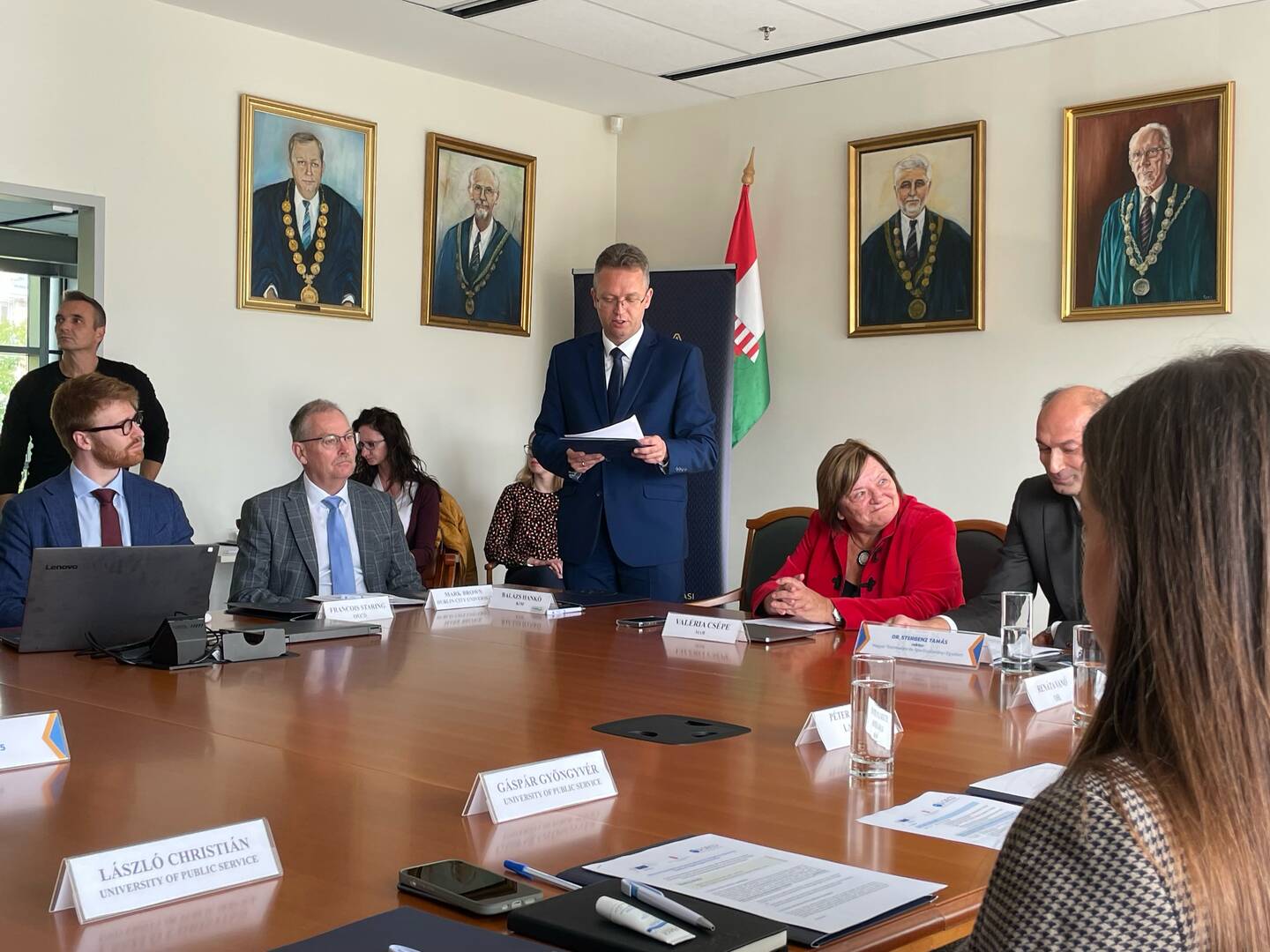A full-day workshop in English including foreign experts was held in the Rome room of the Hungarian University of Sports Sciences on Tuesday within the framework of the project titled ’Ensuring Quality Digital Higher Education in Hungary’.

This event was organised by the Hungarian Deputy State Secretariat for Higher Education at the Ministry of Culture and Innovation (KIM) with contribution of the Hungarian Accreditation Committee (MAB), with support from the Organisation for Economic Co-Operation and Development (OECD). It is organised in the context of the ongoing project “Ensuring Quality Digital Higher Education in Hungary”, funded by the European Commission’s Directorate-General for Structural Reform Support (DG REFORM).
The project aims to support the development of quality assurance policies, standards and practices to be implemented by MAB that can advance the development of high-quality digital higher education in Hungary and identify further supports that can enhance the capacity of Hungarian higher education institutions to plan and manage the quality of the digital teaching and learning they provide.
It was Prof Dr Valéria Csépe, President of MAB who welcomed the guests first, followed by Balázs Hankó, Deputy State Secretary for Higher Education, who welcomed the guests.

‘We have been working for a year, but this is the first time we have met in person’ he told the participants of the project. ‘I would like to thank the Hungarian University of Sports Sciences for offering their support so that HUSS can host our second roundtable. The Hungarian government has recognised the importance of digital transformation early on and is committed to helping its citizens in this process.’
In his speech, Rector Prof Dr Tamás Sterbenz first briefly introduced the university, emphasizing that when it was founded in 1925, HUSS was the first higher education institution in Eastern Europe to focus on physical culture and physical education.
‘The creation of the National Strategy for Sport in 2010 opened up a whole new dimension for our university. We want to continue to take this opportunity and become a competitive player in the international market, while meeting international quality standards in higher education. We firmly believe that sport is one of the most effective ways of building bridges between nations, cultures, institutions and, above all, young people’, he stressed.
The project will end in April 2023.
Archive
-
2025
-
2024
- 2024 December (5 articles)
- 2024 November (8 articles)
- 2024 October (16 articles)
- 2024 September (18 articles)
- 2024 August (14 articles)
- 2024 July (13 articles)
- 2024 June (19 articles)
- 2024 May (18 articles)
- 2024 April (18 articles)
- 2024 March (14 articles)
- 2024 February (10 articles)
- 2024 January (4 articles)
-
2023
- 2023 December (8 articles)
- 2023 November (15 articles)
- 2023 October (18 articles)
- 2023 September (9 articles)
- 2023 August (11 articles)
- 2023 July (15 articles)
- 2023 June (11 articles)
- 2023 May (17 articles)
- 2023 April (15 articles)
- 2023 March (8 articles)
- 2023 February (5 articles)
- 2023 January (10 articles)
-
2022
-
2021
-
2020
-
2019
-
2018
-
2017
-
2016
-
2015
-
2014



